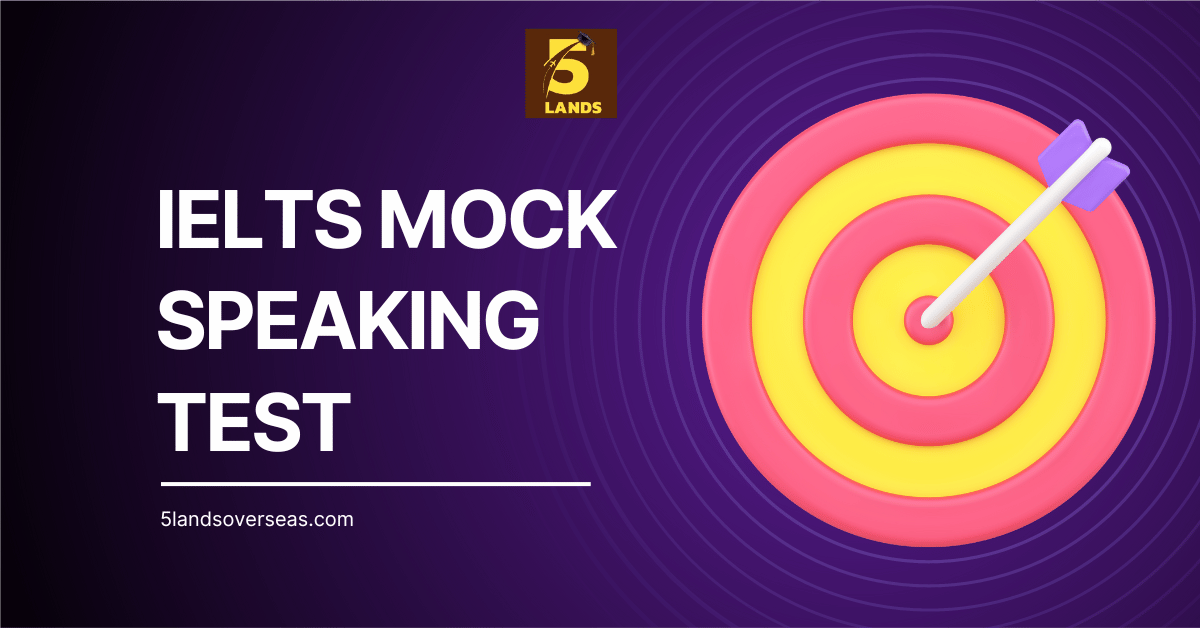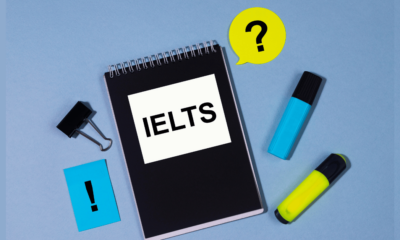IELTS
Improving IELTS Writing Test Scores!

Improving IELTS Writing Test Scores
Introduction
The IELTS Writing test assesses your ability to express your thoughts clearly and coherently in written English. It consists of two tasks: Task 1, where you describe visual information, and Task 2, where you write an essay in response to a question or statement. These tasks evaluate your writing skills, including your ability to organize ideas, use appropriate vocabulary, and apply correct grammar.
Understand the IELTS Writing Test Format
Familiarize yourself with the IELTS Writing test format. Task 1 typically requires you to describe and interpret visual data, such as graphs, charts, or diagrams, in your own words. Task 2 involves writing an essay, which can be either discursive, argumentative, or problem solution. Knowing what to expect in each task is crucial for effective preparation.
Develop Strong Grammar and Sentence Structure
Grammar and sentence structure are crucial in IELTS Writing. Review English grammar rules, pay attention to sentence construction, and ensure your sentences are clear and error-free. Use a variety of sentence structures to enhance your writing.
Practice Writing Regularly
The more you write, the better you become. Practice writing essays on a wide range of topics, focusing on both Task 1 and Task 2. Set aside time for daily or weekly writing practice to improve your writing fluency.
Time Management
Time management is key in the IELTS Writing test. Task 1 and Task 2 have specific time limits, and you must allocate your time wisely. Practice writing essays under timed conditions to ensure you can complete both tasks within the allotted time.
Learn from Sample Essays
Study sample essays written by high-scoring IELTS candidates. Analyze their writing style, vocabulary use, and structure. This can provide insights into what makes an essay effective and well-received.
Conclusion
In conclusion, improving your IELTS Writing test scores requires practice, preparation, and a commitment to honing your writing skills. By understanding the test format, enhancing your vocabulary, developing strong grammar and sentence structure, practising regularly, managing your time effectively, seeking feedback, and learning from sample essays, you can boost your confidence and performance in the IELTS Writing test. Remember that consistent effort and dedication are the keys to achieving higher band scores in this critical part of the IELTS exam. Good luck on your journey to improving your IELTS Writing test scores!
Contact us for the Best IELTS Coaching in Hyderabad – 7416905590
IELTS
The Ultimate 30-Day Study Plan for IELTS Success!

The Ultimate 30-Day Study Plan for IELTS Success!
Key Highlights
- Achieve a high score on the IELTS exam with this 30-day study plan
- Prepare effectively with the right study materials and strategies
- Focus on understanding the IELTS format and question types in the first week
- Enhance your listening skills through focused practice in week two
- Improve your reading skills for speed and comprehension in week three
- Master writing tasks 1 and 2 with effective strategies in week four
- Enhance your speaking skills through techniques and practice in the last week
Introduction
The International English Language Testing System (IELTS) is a widely recognized test that measures a person’s language proficiency for academic and professional purposes. Whether you are planning to study in an English-speaking country, immigrate, or pursue career opportunities, a high score on the IELTS can open doors for you. However, achieving a high score requires diligent preparation and effective study strategies. In this blog, we will provide you with the ultimate 30-day study plan to help you succeed in the IELTS exam and improve your English language proficiency.
The Ultimate 30-Day Guide to Acing the IELTS
Preparing for the IELTS exam can be overwhelming, especially if you are unsure of where to start. This 30-day study plan will guide you through each step of the preparation process, providing you with the necessary study materials and effective strategies to maximize your chances of success. From understanding the IELTS format and question types to improving your language skills in listening, reading, writing, and speaking, this guide will cover it all. By setting the timer for 30 minutes and following this plan diligently, you will be well-prepared and confident on exam day.
Day 1-5: Understanding the IELTS Format and Question Types
In the first week of your 30-day study plan, it is crucial to familiarize yourself with the IELTS format and question types. Understanding the structure of the test will help you approach each section with confidence. Spend time reading the IELTS test format and exam format to understand the expectations in each module. Familiarize yourself with the different question types, such as multiple-choice, matching, and short answer. Practice sample questions to get a sense of the level of difficulty and the skills required to answer them. By the end of the first week, you should have a clear understanding of what to expect on the exam and the strategies you can employ to tackle each question type effectively.
Day 6-10: Focused Listening Practice
During the second week of your study plan, dedicate your time to focused listening practice. Listening is an essential skill in the IELTS exam, and it requires not only language proficiency but also strong comprehension abilities. Here are some key strategies and activities to improve your listening skills:
- Practice listening to a variety of accents and speech speeds
- Take notes while listening to improve your concentration and retention
- Use online resources and audio materials specifically designed for IELTS listening practice
- Analyze the types of questions commonly asked in the listening section
- Take regular practice tests to assess your progress and identify areas for improvement
By the end of this week, you should notice significant improvements in your listening skills and feel more confident in your ability to understand and respond to spoken English.
Day 11-15: Enhancing Reading Skills for Speed and Comprehension
In the third week of your study plan, focus on enhancing your reading skills for speed and comprehension. The reading section of the IELTS exam requires you to read and understand a variety of texts, ranging from articles to academic passages. Here are some strategies to improve your reading skills:
- Practice skimming and scanning techniques to quickly locate information
- Develop your vocabulary to understand complex words and phrases
- Work on improving your reading speed without sacrificing comprehension
- Practice identifying the main ideas, supporting details, and the writer’s purpose in a text
- Take timed practice tests to simulate the exam conditions and improve your reading speed
By the end of this week, you should feel more comfortable and confident in tackling the reading section of the IELTS exam.
Day 16-20: Improving Writing – Task 1 and Task 2 Strategies
In the fourth week of your study plan, shift your focus to improving your writing skills, specifically for Task 1 and Task 2. Here are some strategies to help you excel in the writing section:
- Familiarize yourself with the different types of Task 1 questions, such as describing graphs, charts, and diagrams
- Practice organizing your ideas and writing coherent paragraphs
- Develop your vocabulary and grammar skills to express your thoughts effectively
- Learn how to structure your essays for Task 2, including introduction, body paragraphs, and conclusion
- Practice writing essays within the time limit to improve your time management skills
By the end of this week, you should feel confident in your ability to write well-structured and coherent essays for both Task 1 and Task 2.
Day 21-25: Speaking Skills – Techniques and Practice
In the fifth week of your study plan, focus on improving your speaking skills. The speaking section of the IELTS exam assesses your ability to communicate effectively in English. Here are some strategies to help you improve your speaking skills:
- Practice speaking English regularly, both with a partner and alone
- Focus on fluency and pronunciation, paying attention to intonation and stress
- Expand your vocabulary and use a wide range of expressions and idioms
- Work on organizing your thoughts and speaking coherently
- Record yourself speaking and listen for areas of improvement
By the end of this week, you should feel more confident in your ability to speak fluently and express your ideas clearly during the speaking section of the IELTS exam.
Day 26-30: Full-Length Practice Tests and Review
In the final week of your study plan, it is essential to gauge your progress and identify any areas that need further improvement. Take full-length practice tests, also known as mock tests, under timed conditions to simulate the exam experience. After each test, review your answers and identify your strengths and weaknesses. Here is a suggested breakdown for the final week:
Day 26-27: Take a full-length practice reading and listening test
Day 28-29: Take a full-length practice writing and speaking test
Day 30: Review your performance, identify areas for improvement, and revise key concepts as necessary
By the end of this week, you should feel confident and well-prepared to tackle the IELTS exam.
Section Breakdown and Expert Tips
To achieve success in the IELTS exam, it is essential to understand the breakdown of each section and utilize effective strategies. Here is a breakdown of each section, along with some expert tips to help you maximize your score:
Listening Section: Tactics for Every Question Type
The listening section of the IELTS exam assesses your ability to understand spoken English. Here are some tactics to tackle each question type:
- Multiple-choice: Read the options before listening and eliminate incorrect answers
- Matching: Focus on keywords and paraphrasing in the questions and texts
- Sentence completion: Pay attention to grammar and word order
- Note completion: Use abbreviations and symbols to save time
- Summary completion: Identify the main ideas and supporting details
By employing these tactics, you can improve your performance in the listening section and maximize your score.
Reading Section: Accelerating Your Reading Pace and Accuracy
The reading section of the IELTS exam requires you to read and understand a variety of texts. Here are some tips to improve your reading pace and accuracy:
- Skim the passage before reading the questions to get an overview of the content
- Underline or highlight keywords and key phrases as you read
- Pay attention to the structure of the passage and how ideas are organized
- Practice time management to ensure you complete all the questions within the given time
- Use context clues to understand unfamiliar vocabulary
Writing Section: Mastering Coherence, Cohesion, and Grammar
The writing section of the IELTS exam assesses your ability to express yourself in written English. Here are some tips to master coherence, cohesion, and grammar in your writing:
- Plan your essay before you start writing to ensure a clear structure and flow of ideas
- Use linking words and phrases to connect your ideas and create a cohesive piece of writing
- Pay attention to grammar, punctuation, and sentence structure
- Use a variety of sentence structures and vocabulary to demonstrate your language proficiency
- Practice writing essays on a variety of topics to improve your writing skills
Speaking Section: Fluency, Pronunciation, and Confidence Building
The speaking section of the IELTS exam assesses your ability to communicate effectively in spoken English. Here are some tips to improve your fluency, pronunciation, and confidence:
- Practice speaking English regularly, even outside of the exam preparation
- Record yourself speaking and analyze your pronunciation
- Focus on stress and intonation to improve your spoken rhythm
- Practice speaking in front of a mirror or with a partner to build confidence
- Use a wide range of vocabulary and expressions to showcase your language proficiency
By following these tips, you can improve your speaking skills and perform well in the speaking section of the IELTS exam.
Study Materials and Resources
Choosing the right study materials and resources is crucial for effective IELTS preparation. Here are some recommended books and online resources:
- Recommended Books:
- “The Official Cambridge Guide to IELTS”
- “Barron’s IELTS Superpack”
- “IELTS Trainer: Six Practice Tests with Answers and Audio CDs”
- Online Resources:
- British Council IELTS website
- IDP IELTS website
- IELTS Liz YouTube channel
These study materials and resources provide valuable practice materials, tips, and strategies to help you succeed in the IELTS exam.
Recommended Books and Online Resources
To enhance your IELTS preparation, it is important to utilize reliable study materials and online resources. Here are some recommended books and online resources:
- Recommended Books:
- “The Official Cambridge Guide to IELTS” provides comprehensive preparation materials and practice tests.
- “Barron’s IELTS Super pack” offers a wide range of practice materials and strategies for each section of the exam.
- “IELTS Trainer: Six Practice Tests with Answers and Audio CDs” includes practice tests that simulate the actual exam conditions.
- Online Resources:
- The British Council IELTS website and the IDP IELTS website offer free practice materials, sample questions, and tips for each section of the exam.
- The IELTS Liz YouTube channel provides video lessons, sample answers, and tips from an experienced IELTS teacher.
By utilizing these recommended books and online resources, you can enhance your preparation and increase your chances of success in the IELTS exam.
Utilizing Mobile Apps for IELTS Preparation
In addition to books and online resources, there are several mobile apps available that can help you with your IELTS preparation. These apps provide convenient access to practice materials, sample questions, and study resources. Some popular mobile apps for IELTS preparation include:
- IELTS Prep App by British Council and IDP: This app offers practice tests, sample questions, and tips for each section of the exam.
- IELTS Skills by Macmillan Education: This app provides interactive exercises and practice tests to improve your language skills.
- IELTS Practice & Test by Study QA: This app offers practice tests, vocabulary exercises, and tips for IELTS preparation.
Utilizing these mobile apps for regular practice can complement your study plan and help you track your progress on the go.
Time Management and Study Schedule
Effective time management and a well-structured study schedule are essential for successful IELTS preparation. Here are some tips for managing your time and creating a study schedule:
- Identify your target score and set realistic study goals.
- Break down your study plan into daily, weekly, and monthly goals.
- Allocate specific time slots for each section of the exam.
- Prioritize your study materials and allocate more time to areas where you need improvement.
- Create a daily study plan that includes focused practice, review, and self-assessment.
By effectively managing your time and following a structured study schedule, you can make the most of your preparation and achieve your desired score.
Creating a Daily Study Plan
Creating a daily study plan is crucial for effective IELTS preparation. Here is a suggested framework for a daily study plan:
- Allocate specific time slots for each section of the exam.
- Start with a warm-up activity, such as reviewing vocabulary or listening to English podcasts.
- Focus on one section of the exam at a time, dedicating sufficient time for practice and review.
- Incorporate breaks to recharge your mind and avoid burnout.
- End each study session with a self-assessment to track your progress.
Remember to set realistic goals based on your target score and allocate more time to areas where you need improvement. By following a daily study plan, you can maximize your study time and make steady progress towards your goal.
Balancing IELTS Preparation with Other Commitments
Balancing IELTS preparation with other commitments can be challenging, but with proper planning and time management, it is possible to find a balance. Here are some tips to help you balance your IELTS preparation with other commitments:
- Prioritize your study time and allocate specific time slots for IELTS preparation.
- Communicate your study schedule with your family and friends, seeking their support and understanding.
- Break your study sessions into shorter, focused blocks to make the most of limited time.
- Take advantage of idle time, such as commuting, by listening to English podcasts or practicing vocabulary.
- Be flexible and adjust your study plan as needed, considering your other commitments.
By finding a balance between your IELTS preparation and other commitments, you can effectively manage your time and make progress towards your goal.
Conclusion
In essence, the 30-day study plan for IELTS success is a comprehensive roadmap to excel in all sections of the exam. By strategically dividing your preparation into specific focus areas each week, you can efficiently enhance your skills and confidence. From mastering question types to practicing full-length tests, this guide equips you with the essential tools for success. Remember to utilize recommended study materials and expert tips for optimal results. With dedication and a structured study schedule, achieving a high score in the IELTS is within reach. Good luck on your IELTS journey!
Contact us for the best IELTS Coaching in Hyderabad !
IELTS
Mock Speaking Test that Gets You Test-Ready in 30Minutes.

Mock Speaking Test that Gets You Test-Ready in 30Minutes.
The IELTS Mock Speaking test can be a source of anxiety for many candidates. However, one effective way to prepare and build confidence is through a mock speaking test. In this article, we’ll guide you through a thirty-minute mock speaking test to help you feel test-ready and enhance your IELTS Speaking skills.
Table of Contents
1. Introduction
2. Set the Timer for 30 Minutes
3. Task 1: Introduction and Interview
4. Task 2: Long Turn
5. Task 3: Discussion
6. Self-Evaluation and Reflection
7. Conclusion
Introduction
The IELTS Speaking test evaluates your ability to communicate in English across various topics and contexts. Engaging in a mock speaking test provides a chance to practice and familiarize yourself with the test format and structure.
Set the Timer for 30 Minutes
To mimic the actual IELTS Speaking test, set a timer for 30 minutes. This time constraint will help you manage your responses effectively, as the IELTS Speaking test strictly adheres to time limits for each section.
Task 1: Introduction and Interview
In Task 1, you’ll start with a brief introduction and an interview with the examiner. Begin by introducing yourself, providing your name, and sharing where you’re from. The examiner will then ask you questions on everyday topics. Respond confidently and clearly, aiming to create a positive first impression.
Task 2: Long Turn
Task 2 involves a long turn where you will receive a cue card with a topic and prompts. You have one minute to prepare your response, and then you’ll speak for up to two minutes on the given topic. Practice by selecting random topics and speaking for two minutes on each. Focus on maintaining structure and coherence in your responses.
Task 3: Discussion
In Task 3, you engage in a more extended discussion with the examiner, primarily centred on the topic from Task 2. Be prepared to provide more detailed and nuanced responses. Engage in a meaningful conversation with the examiner, expressing your opinions, justifying them, and discussing related ideas.
Self-Evaluation and Reflection
After completing the mock speaking test, take a few minutes to evaluate your performance. Consider the following aspects:
Clarity: Were your responses clear and easy to understand?
Fluency: Did you speak fluently, without excessive pauses or hesitations?
Vocabulary: Did you use a variety of vocabulary and expressions?
Grammar: Were your sentences grammatically correct?
Pronunciation: Was your pronunciation clear and accurate?
Make a note of areas where you excelled and where you need improvement. This self-evaluation will help you identify strengths and weaknesses in your speaking skills.
Conclusion
Engaging in a thirty-minute mock speaking test is an excellent way to enhance your IELTS Speaking skills and build confidence. Simulating the test environment helps you become more comfortable with the format and structure, ultimately positively impacting your performance in the actual IELTS Speaking test. Regular practice and self-reflection will help you identify areas for improvement, refine your speaking skills, and increase your chances of achieving a higher band score. With consistent preparation and practice, you’ll be well on your way to success in the IELTS Speaking test. Good luck with your IELTS journey!
Contact us for the Best IELTS Coaching in Hyderabad: +91-7416905590
IELTS
5 Essential IELTS Speaking Strategies

5 Essential IELTS Speaking Strategies:
The speaking test is a crucial part of the International English Language Testing System (IELTS) exam, and it can often be a source of stress and anxiety for test takers. However, with the right strategies and preparation, you can greatly improve your performance and achieve the band score you desire. In this blog, we will explore key tips and techniques that will help you excel in the essential IELTS speaking strategies and test prep. From understanding the format of the test to leveraging non-verbal communication, we will cover everything you need to know to boost your speaking skills.
Understanding the IELTS Speaking Test
The IELTS speaking test is designed to assess your English speaking skills through a face-to-face interview with a certified IELTS examiner. It evaluates your abilities in terms of fluency, pronunciation, vocabulary, grammar, and coherence. The test is divided into three parts. In Part 1, the examiner will ask general questions about familiar topics, such as family, work, hobbies, and interests. Part 2 involves speaking on a given topic for two minutes, after having one minute to prepare. Part 3 consists of a discussion on broader issues related to the topic given in Part 2. Understanding the assessment criteria, test format, and the different parts of the speaking test is crucial for effective preparation.
Format of the Speaking Test:
The IELTS speaking test consists of three parts, each serving a different purpose in evaluating the test taker’s speaking skills. Let’s take a closer look at the format of each part:
Part 1: Introduction and Interview
- Duration: 4-5 minutes
- The examiner will ask the test taker general questions about familiar topics, such as their work, studies, hobbies, and interests.
- The purpose of this part is to put the test taker at ease and provide an opportunity for them to warm up.
- The examiner will assess the test taker’s ability to provide relevant information, express opinions, and engage in a conversation.
- Part 2: Individual Long Turn
- Duration: 3-4 minutes
- The test taker will be given a task card with a topic written on it.
- They will have one minute to prepare their response, using the cue card to guide them.
- After the preparation time, the test taker will speak for up to two minutes on the given topic.
- Once the test taker has finished speaking, the examiner may ask one or two follow-up questions related to the topic.
- The examiner will evaluate the test taker’s ability to speak coherently, maintain fluency, develop ideas, and use appropriate vocabulary and grammar.
- Part 3: Two-way Discussion
- Duration: 4-5 minutes
- In this part, the examiner will ask the test taker further questions, related to the topic of Part 2, encouraging them to discuss more abstract ideas, express opinions, and provide examples or reasons to support their views.
- The examiner will assess the test taker’s ability to engage in a conversation, express complex ideas, use appropriate language, and demonstrate critical thinking skills.
- To perform well in each part of the speaking test, test takers should familiarize themselves with the format, practice speaking on a variety of topics, and develop effective speaking strategies.
Comprehensive Preparation for the Speaking Test
Comprehensive preparation is key to performing well in the IELTS speaking test. To excel, test takers should focus on the following areas:
- Understand the format of the test and what is expected of you for each section.
- Practice speaking English regularly to improve your fluency and confidence.
- Expand your vocabulary and practice using a variety of grammatical structures.
- Learn how to organize your thoughts and present them clearly and concisely.
- Use relevant examples and personal experiences to support your answers.
- Practice with a variety of topics and questions to improve your ability to think on your feet.
Make English Speaking a Habit:
One of the most effective strategies for improving your speaking skills is to make English speaking a habit. Consistent practice is key to developing fluency, vocabulary, and the ability to express yourself confidently.
Don’t Limit Yourself to Memorized Answers:
When preparing for the IELTS Speaking test, it’s crucial to avoid relying on memorized answers. This practice can make your responses sound robotic and may not be entirely relevant to the examiner’s question. Instead, focus on understanding the question and responding naturally with well-structured answers. It’s essential to practice speaking about diverse topics to develop the ability to think and speak spontaneously.
Focus on Clear Pronunciation, Not Accent:
When preparing for the IELTS speaking test, prioritize clear pronunciation over accent. The assessment criteria emphasize the importance of appropriate language usage and clear communication. It’s crucial to practice enunciating challenging sounds and words to enhance your verbal clarity.
Key Strategies to Score High in IELTS Speaking
Understanding the assessment criteria and band score is crucial. Using appropriate language and verb tense is essential to meet the marking criteria. IELTS practice materials offer sample questions for common IELTS topics. Practice speaking in simple sentences with a wide range of accents.
Avoid Using Fillers:
It’s essential to eliminate unnecessary words to enhance fluency and coherence. By replacing fillers with pauses, you can gather thoughts and speak more naturally. Minimizing the use of “um,” “ah,” and “you know” will make you sound more confident. Practicing speaking without fillers will improve clarity and articulation skills, ultimately enhancing the overall quality of the speaking test.
Practice Rephrasing Your Ideas:
By practising the skill of rephrasing sentences with diverse vocabulary, you can enhance your language proficiency. Rephrasing not only demonstrates a wide spectrum of vocabulary and grammatical structures but also allows you to convey the same message using varied language. This practice is essential for improving lexical resources and grammatical range, showcasing your ability to effectively convey meaning.
Leveraging Non-Verbal Communication in IELTS Speaking
Non-verbal communication in IELTS Speaking plays a crucial role in conveying confidence and fluency. Utilizing hand gestures and facial expressions can enhance the overall impact of your speech. Making eye contact with the examiner portrays a sense of direct engagement, while body language can complement your verbal responses. These non-verbal cues contribute to a more natural and engaging delivery, which aligns with the assessment criteria. Incorporating NLP terms such as “assessment criteria” and “non-verbal communication” demonstrates a comprehensive understanding of the IELTS Speaking test.
Use Smiling to Improve Pronunciation:
Improving pronunciation can be achieved by incorporating smiling into speech. The act of smiling while speaking can positively impact the tone of voice and enhance pronunciation features, aiding in clearer speech. Additionally, smiling naturally leads to a wider range of pronunciation features, improving the overall range of pronunciation. By utilizing smiling during speaking practice, individuals can effectively enhance the pronunciation of words, leading to improved communication skills.
Avoid Monotonous Speech:
To maintain listener engagement and enhance the speaking test score, it’s crucial to vary the tone of our voice. By avoiding a flat, monotonous voice and incorporating intonation and stress, we can convey enthusiasm and confidence. This dynamism contributes to the range of pronunciation features and ensures that the speaking style remains engaging. Modulating the tone of our voice and using varied pitch are essential components of conveying confidence and enthusiasm during the speaking test.
Exploring Common IELTS Speaking Topics
At the end of the day, IELTS Speaking Topics cover a wide range of accents and vocabulary lists. Common questions require simple sentences and little variation. Sample questions may contain interesting questions, so it’s important to practice speaking on common IELTS topics. Part of the Speaking Test involves using present tense and a range of grammatical structures. IELTS students can prepare by using IELTS practice materials and seeking guidance from IELTS experts to optimize their performance.
Learn to Speak on a Variety of Topics:
Conversing on different topics during the assessment demonstrates linguistic prowess and adaptability. It reflects high language proficiency and strengthens speaking skills. Speaking fluently across diverse subjects is crucial for achieving a higher band score in the IELTS test. Showcase appropriate language use, including a wide range of accents and grammatical structures.
Practice Speaking on Common IELTS Topics:
Practicing speaking on common IELTS topics is crucial for fluency, coherence, and lexical resource. Consistent practice develops confidence, readiness for any subject, and clear expression of ideas. It enhances language skills and speaking test performance. Mastery of common topics ensures confidence and readiness, contributing to improved performance in the speaking test.
Optimizing Your IELTS Speaking Practice
To improve your IELTS speaking, you must analyze your mistakes and work on them. Practice different accents, feel comfortable discussing various topics for extended periods. Use interesting questions for practice. Seek feedback from experts and use IELTS materials to further improve. Record and review your speech to identify areas of growth. Find a study partner to make it an enjoyable learning experience.
Don’t speak in a monotone:
Varying your tone helps maintain the examiner’s interest and engagement. It’s important to use intonation to highlight crucial information and practice expressing various emotions through rising and falling tones. Speaking in a flat, unemotional manner can make you seem disinterested. Record your speech to evaluate your tone and make necessary improvements.
Conclusion
TTo do well in the IELTS Speaking Test, prepare a lot. Speak English often and don’t memorize answers. Focus on clear pronunciation, not accent, and avoid fillers. Re-phrase your thoughts to show flexibility and use non-verbal communication like smiling to sound better. Talk about many different topics that come up in the test. Record and study your speech, and practice with a friend. By doing all these things, you can do your best on the IELTS Speaking Test and get a high score!
-

 IELTS5 months ago
IELTS5 months agoHow Does IELTS Help You in Higher Education? 7 Things You Should know Today
-

 IELTS5 months ago
IELTS5 months agoAcing the IELTS Listening Section: 6 Tips & Strategies
-

 GMAT5 months ago
GMAT5 months agoChoosing the Right GMAT Prep Course: Factors to Consider!
-

 SAT5 months ago
SAT5 months agoCracking the SAT Math Section: Tips, Tricks, and Strategies
-

 IELTS4 months ago
IELTS4 months agoIELTS Test Format You Need to Know!
-

 SAT5 months ago
SAT5 months ago8 Most Common SAT Mistakes Made by Students
-

 IELTS4 months ago
IELTS4 months agoIELTS Material and Resources: Get IELTS Tips, Tricks & Practice Test
-

 SAT5 months ago
SAT5 months ago5 Tips to Manage SAT Test Anxiety!








